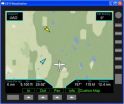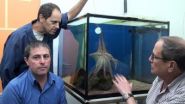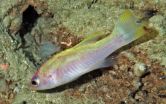(Press-News.org) Philadelphia, PA, May 19, 2014 – While dementia patients can often suffer from depression and declining physical and mental ability, exercise has been shown to help improve both their physical and psychological wellbeing. Researchers at Teesside University in the U.K. investigated how combining cognitive activities and elements of yoga, tai chi, qigong and meditation with routine physical exercise affected dementia patients. They found that a holistic exercise program focusing on both mind and body can help improve quality of life for dementia patients. Their findings are published in the Journal of Bodywork and Movement Therapies.
For this study, conducted in association with the Alzheimer's Society (UK), researchers developed the Happy Antics program, a holistic exercise plan that integrates physical movements with activities designed to take the emotional, intellectual, social, and spiritual health of patients into consideration. Each Happy Antics session started with a short cognitive exercise during which participants were shown a picture of an object while the instructor spoke briefly about it. Then patients were encouraged to discuss the object and ask questions. This activity was followed by warm-up exercises and then physical exercise incorporating principals of tai chi, yoga, qigong, and dance movements. Each session ended with a short, guided meditation activity that focused on breathing and mindful awareness.
Fifteen participants ranging from 52 to 86 years old attended the program: eight dementia patients, five care-givers, and two volunteers. The overall attendance rate for six sessions was 70%, and all participants reported having enjoyed taking part in the holistic exercise sessions, looked forward to attending them, and felt like the sessions helped them socially. Some patients also said they felt more relaxed after the sessions and experienced some degree of pain relief. Other patients found learning to do the new exercises "empowering," even though sometimes they faced physical difficulty performing the tasks.
"When the wellness approach is applied to exercise, holistic exercise strives to encourage individuals not only to take part in the physical activities, but also to become aware of their own physical and psychological states, and to perform exercise that is purposeful and meaningful to them," explained lead investigator Yvonne J-Lyn Khoo, BSc (Hons), MSc, PhD, of the Health and Social Care Institute, Teesside University.
The holistic mind-and-body approach proved to be both enjoyable and helpful for patients suffering from dementia. Not only did they like the sessions, but also showed improvement in memory recall in their anticipation of the physical movements associated with the music.
"Observations at the sixth session showed that even though people with dementia could not remember what had occurred during previous sessions, six people with dementia who participated in the holistic exercise sessions could anticipate the physical movements associated with specific music and three people with dementia were able to remember the sequence of the physical movements," said Dr. Khoo. "This showed potential in maintained procedural memory among people with dementia who attended the holistic exercise sessions."
The Happy Antics program included participation by care-givers. While the program helped dementia patients, it also had positive effects on the other participants, with one care-giver reporting less pain after attending the sessions. This particular finding of pain relief after participating in holistic exercise is an important one given the unique complexity of chronic pain. "This suggests that participating in holistic exercise may offer some relief in burden for care-givers as they face many challenges in providing care for patients with dementia, including physical and psychological distress," added Dr. Khoo.
Dementia is a complex and debilitating condition, but with holistic exercise programs like Happy Antics, patients experienced some relief, joy, and lasting positive effects. "The Happy Antics program was able to stimulate and engage people with dementia in exercise as well as provide a social learning environment and offer potential psychological benefits," concluded Dr. Khoo.
INFORMATION: END
Study shows dementia patients benefit from holistic exercise program
Pairing cognitive activities with physical movements helps patients and care-givers alike, according to Journal of Bodywork and Movement Therapies
2014-05-19
ELSE PRESS RELEASES FROM THIS DATE:
Optical brain scanner goes where other brain scanners can't
2014-05-19
Scientists have advanced a brain-scanning technology that tracks what the brain is doing by shining dozens of tiny LED lights on the head. This new generation of neuroimaging compares favorably to other approaches but avoids the radiation exposure and bulky magnets the others require, according to new research at Washington University School of Medicine in St. Louis.
The new optical approach to brain scanning is ideally suited for children and for patients with electronic implants, such as pacemakers, cochlear implants and deep brain stimulators (used to treat Parkinson's ...
Skunk Fire, Arizona
2014-05-19
The Skunk Fire continues to burn on the San Carlos Apache Reservation in southeastern Arizona and NASA's Aqua satellite captured an image of the smoke on May 17 at 20:15 UTC (4:15 p.m. EDT/1:15 p.m. MST). A Fire Weather Watch has been posted for the region for May 20.
The Moderate Resolution Imaging Spectroradiometer or MODIS instrument that flies aboard NASA's Aqua satellite captured this photograph of the smoke. The extent of the fire (the heat) is outlined in red in this image).
According to Inciweb, the multi-U.S. agency Incident Information System website that ...
Gastroenterology highlights new microbiome research
2014-05-19
Bethesda, MD (May 19, 2014) — The editors of Gastroenterology, the official journal of the American Gastroenterological Association (AGA) Institute, are pleased to announce the publication of this year's highly anticipated special 13th issue on the intestinal microbiome, which is considered one of the hottest areas of science today.
"We are beginning to understand the ways by which the microbial environment of the gut may play a role in both the maintance of human health and the development of certain diseases. Data in this special issue of Gastroenterology may lead ...
Liberating devices from their power cords
2014-05-19
Imagine a future in which our electrical gadgets are no longer limited by plugs and external power sources.
This intriguing prospect is one of the reasons for the current interest in building the capacity to store electrical energy directly into a wide range of products, such as a laptop whose casing serves as its battery, or an electric car powered by energy stored in its chassis, or a home where the dry wall and siding store the electricity that runs the lights and appliances.
It also makes the small, dull grey wafers that graduate student Andrew Westover and Assistant ...
Having and raising offspring is costly phase of life for baboon moms
2014-05-19
Observations made over the past 29 years in Kenya as part of one of the world's longest-running studies of a wild primate show how having offspring influences the health of female baboons. These observations highlight that females are mostly injured on days when they are likely to conceive. In addition, injuries heal the slowest when they are suckling their young. The study, published in Springer's journal Behavioral Ecology and Sociobiology, is led by Elizabeth Archie of the University of Notre Dame in the US and the National Museums of Kenya.
Reproduction can be dangerous ...
UT Dallas lab eliminates rare metals in electric motors
2014-05-19
A team from the Renewable Energy and Vehicular Technology Laboratory(REVT) at UT Dallas was one of a few research groups selected for advanced participation in a Department of Energy conference aimed at presenting the next generation of energy technologies.
The DOE's Advanced Research Projects Agency-Energy (ARPA-E) program hosts an annual summit in Washington, D.C., for researchers, entrepreneurs, investors, corporate executives and government officials to share transformational research funded through the program.
Dr. Babak Fahimi, professor of electrical engineering ...
Genes play key role in brain injury risk for premature babies
2014-05-19
Premature babies' risk of brain injury is influenced by their genes, a new study suggests.
Researchers have identified a link between injury to the developing brain and common variation in genes associated with schizophrenia and the metabolism of fat.
The study builds on previous research, which has shown that being born prematurely – before 37 weeks – is a leading cause of learning and behavioural difficulties in childhood.
Around half of infants weighing less than 1500g at birth go on to experience difficulties in learning and attention at school age.
Scientists ...
Engineers find way to lower risk of midair collisions for small aircraft
2014-05-19
Researchers at North Carolina State University have developed new modifications for technology that helps pilots of small aircraft avoid midair collisions. The modified tools significantly improved pilot response times in making decisions to avert crashes.
At issue are "cockpit displays of traffic information" (CDTIs). These are GPS displays used by private pilots to track other aircraft in their vicinity. However, pilots often focus on the closest aircraft on the display – a habit that can pose a significant hazard.
If the pilot of Plane A sees two planes on the CDTI, ...
How octopuses don't tie themselves in knots revealed by Hebrew University scientists
2014-05-19
An octopus's arms are covered in hundreds of suckers that will stick to just about anything, with one important exception: those suckers generally won't grab onto the octopus itself, otherwise the impressively flexible animals would quickly find themselves all tangled up.
Now, researchers from the Hebrew University of Jerusalem report that they discovered how octopuses manage this feat, even as the creatures' brains are unaware of what their arms are doing. A chemical produced by octopus skin temporarily prevents their suckers from sucking.
"We were surprised that ...
The spot-tail golden bass: A new fish species from deep reefs of the southern Caribbean
2014-05-19
Smithsonian scientists describe a colorful new species of small coral reef sea bass from depths of 182–241 m off Curaçao, southern Caribbean. With predominantly yellow body and fins, the new species, Liopropoma santi, closely resembles the other two "golden basses" found together with it at Curaçao: L. aberrans and L. olneyi.
The scientists originally thought there was a single species of golden bass on deep reefs off Curaçao, but DNA data, distinct color patterns, and morphology revealed three. The study describing one of those, L. santi—the deepest known species of ...
LAST 30 PRESS RELEASES:
Scientists discover why we know when to stop scratching an itch
A hidden reason inner ear cells die – and what it means for preventing hearing loss
Researchers discover how tuberculosis bacteria use a “stealth” mechanism to evade the immune system
New microscopy technique lets scientists see cells in unprecedented detail and color
Sometimes less is more: Scientists rethink how to pack medicine into tiny delivery capsules
Scientists build low-cost microscope to study living cells in zero gravity
The Biophysical Journal names Denis V. Titov the 2025 Paper of the Year-Early Career Investigator awardee
Scientists show how your body senses cold—and why menthol feels cool
Scientists deliver new molecule for getting DNA into cells
Study reveals insights about brain regions linked to OCD, informing potential treatments
Does ocean saltiness influence El Niño?
2026 Young Investigators: ONR celebrates new talent tackling warfighter challenges
Genetics help explain who gets the ‘telltale tingle’ from music, art and literature
Many Americans misunderstand medical aid in dying laws
Researchers publish landmark infectious disease study in ‘Science’
New NSF award supports innovative role-playing game approach to strengthening research security in academia
Kumar named to ACMA Emerging Leaders Program for 2026
AI language models could transform aquatic environmental risk assessment
New isotope tools reveal hidden pathways reshaping the global nitrogen cycle
Study reveals how antibiotic structure controls removal from water using biochar
Why chronic pain lasts longer in women: Immune cells offer clues
Toxic exposure creates epigenetic disease risk over 20 generations
More time spent on social media linked to steroid use intentions among boys and men
New study suggests a “kick it while it’s down” approach to cancer treatment could improve cure rates
Milken Institute, Ann Theodore Foundation launch new grant to support clinical trial for potential sarcoidosis treatment
New strategies boost effectiveness of CAR-NK therapy against cancer
Study: Adolescent cannabis use linked to doubling risk of psychotic and bipolar disorders
Invisible harms: drug-related deaths spike after hurricanes and tropical storms
Adolescent cannabis use and risk of psychotic, bipolar, depressive, and anxiety disorders
Anxiety, depression, and care barriers in adults with intellectual and developmental disabilities
[Press-News.org] Study shows dementia patients benefit from holistic exercise programPairing cognitive activities with physical movements helps patients and care-givers alike, according to Journal of Bodywork and Movement Therapies





